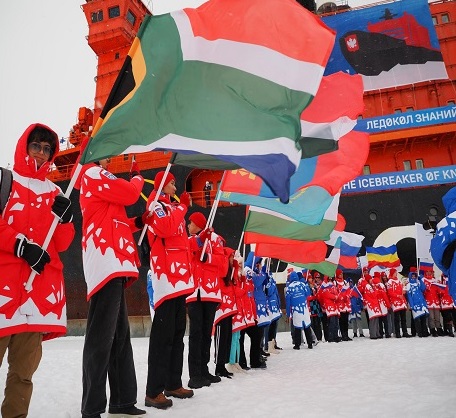Schoolchildren aged 14-16 from Ghana, South Africa, Namibia, and Egypt are racing against time to secure spots on one of science education most extraordinary adventures – a North Pole expedition aboard Russia nuclear-powered icebreaker 50 Let Pobedy (50 Years of Victory).
The 2025 edition of Rosatom’s “Icebreaker of Knowledge” program, now in its sixth year, coincides with twin milestones: 80 years of Russia’s nuclear industry and 500 years since the mapping of the Northern Sea Route, adding historic weight to this global youth initiative.

Launched in late April 2025, the competition will select exceptional students from 20 countries across three continents to form an international research team.
Finalists will spend two weeks conducting collaborative Arctic studies while attending lectures by polar scientists and participating in engineering workshops.
For many African participants, this marks their first opportunity to engage in hands-on cryosphere research – and potentially become their nation’s first-ever teen ambassadors at 90° North latitude.
“Last year South African finalist didn’t just study ice cores – she rewrote her country’s polar history,” said Ryan Collyer, CEO of Rosatom Central and Southern Africa.
“This program demolishes geographical barriers in science. We’re seeing Ghanaian coastal communities share climate solutions with Siberian peers, while Egyptian desert-dwellers analyze Arctic salinity data.”
The selection process emphasizes interdisciplinary skills, with candidates submitting projects ranging from renewable energy concepts to Arctic biodiversity preservation strategies.
Winners gain more than a polar voyage – alumni network with Rosatom global research partners and often secure placements at top technical universities.
Since 2019, the program has enabled 350 students worldwide to conduct field studies in Earth’s most extreme environments, with African participation growing 40% year-over-year since 2023.
Successful applicants will be announced in June 2025, ahead of the August expedition window when Arctic ice conditions permit nuclear icebreaker navigation.
With applications from Cairo to Cape Town surging past previous records, this year’s competition promises to cement Africa’s emerging role in global polar research initiatives.
Discover more from Lephalale Express
Subscribe to get the latest posts sent to your email.

Be First to Comment